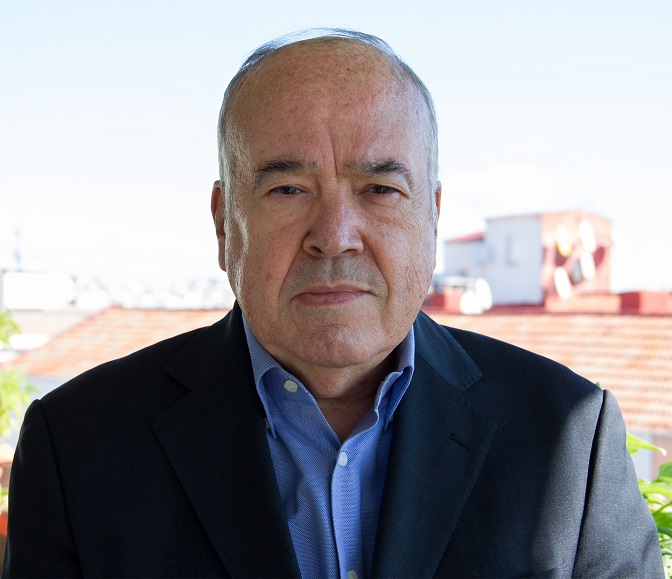On January 23rd, our dear colleague and friend Luis Moreno, Ad-honorem Research Professor of the Higher Council for Scientific Research, passed away. With a PhD in Social Sciences from the University of Edinburgh, he leaves behind a vast intellectual production, which has materialized in numerous books, articles and published volumes on topics as diverse as citizenship, the social dimension of Europe, federalism or the future of democracy. He is one of the most internationally cited Spanish sociologists. Some of his contributions are known in various social sciences. For example, he gave name to the measurement of multiple territorial identities and asymmetric federalism from the comparative study of the cases of Scotland and Catalonia, through the so-called ‘the Moreno question’ (Cuestión Moreno).
A convinced Europeanist, he understood politics as a way of transforming the world and creating the conditions for a better future for all, and he devoted a good part of his intellectual and vital efforts to defending the importance of Europe’s social dimension in the face of new social and the push of neoliberalism.
Undoubtedly, one of his greatest legacies is represented by his work on the welfare state and public policies from a comparative perspective. He defended and promoted the existence of a distinctive Mediterranean welfare regime for the countries of Southern Europe, to whose understanding and dissemination he devoted a good part of his intellectual efforts throughout his career. Luis Moreno was a pioneer in understanding the importance of speaking to the world and crossing national borders, participating in top-level international teams and consolidating a line of work on social and welfare policies in Spain, first through the Institute of Advanced Social Studies of Madrid of the CSIC, of which he was a founder together with Salvador Giner and Manuel Pérez Yruela, and later through the Institute of Public Policies and Goods of the CSIC and the Spanish Social Policy Network, of which he was also a founder.
His training as a journalist and his time in politics at the municipal and regional level prior to his academic dedication undoubtedly left an indelible mark on him, providing him, in addition to an exquisite pen and a sharp wit, an invaluable ability to see beyond. the obvious and elegantly and provocatively synthesize complex problems. This helped him to become not only an internationally renowned academic sociologist but also to make relevant contributions to the public debate inside and outside our borders. Through his frequent collaborations in the press, which he generously distributed among colleagues and friends with a concise “perhaps you might be interested in reading”, he opened, especially in the last years of his career, a door to “electronic public sociology”, with incisive reflections on various topics, always in the eye of the hurricane, which could range from the situation of social democracy in Europe, Brexit, “looming Trumpism”, sexist violence in Spain or the fiscal Pandora’s box.
Indeed, his articles were always interesting and it was not necessary to agree with their opinions. In fact, the discrepancy allowed for long debates, in which he tirelessly displayed his dialectical skills in an exercise of kindness and often dazzling intelligence. His intellectual contributions being so relevant, both in the academic and public fields, in key fields for the improvement of our society, such as social policies, Europeanization or nationalism, one of his greatest merits, beyond his speciality, have been their efforts to consolidate Sociology institutionally and professionally in our country, to make it more international, but also more solid and fruitful within our borders. Among them, we can mention the organization in Spain of the World Congress of Sociology in 1990, the establishment of the ISA Secretariat in Madrid from that moment on, the promotion of research links with countries of the South of Europe and the impulse of several lines of publications.
Professor Luis Moreno was always concerned with creating networks and teams, taking care of them and pampering them, giving young people opportunities, and opening doors without asking for anything in return or expecting it. Also, to raise his voice when necessary to help define the appropriate policies. He was always willing to help, to build and discover new roads, to pave them so that others would travel more comfortably and so that Spanish and universal Sociology would go further.
For all these merits, although perhaps just a few would have been enough, he was recently awarded the 2022 National Prize for Social Science Research, awarded by the Ministry of Science and Innovation, the most relevant distinction in the field of social sciences in Spain. Unfortunately, he will not be able to pick it up in person, although the sociological community will welcome it in his name. Rest in peace.
